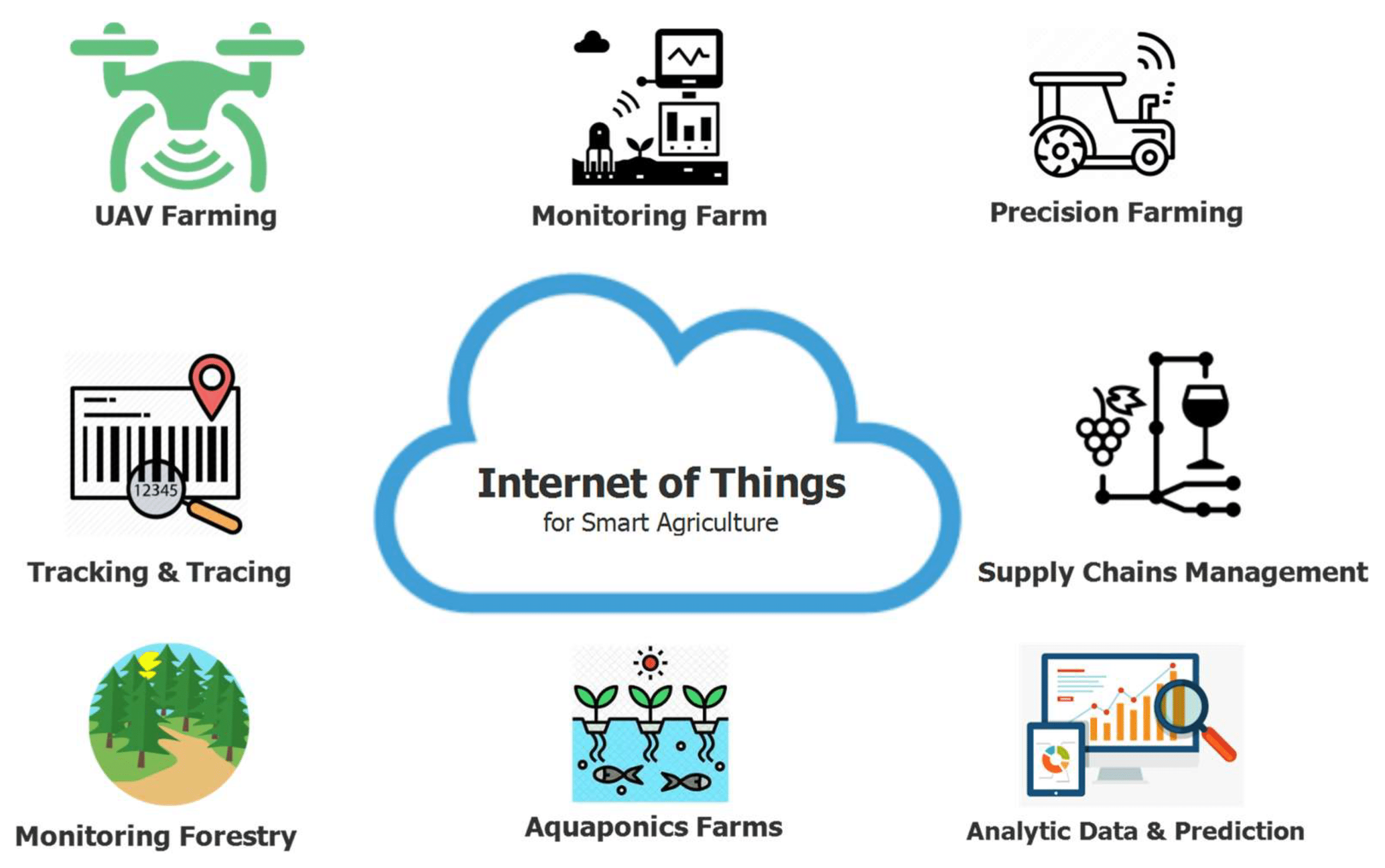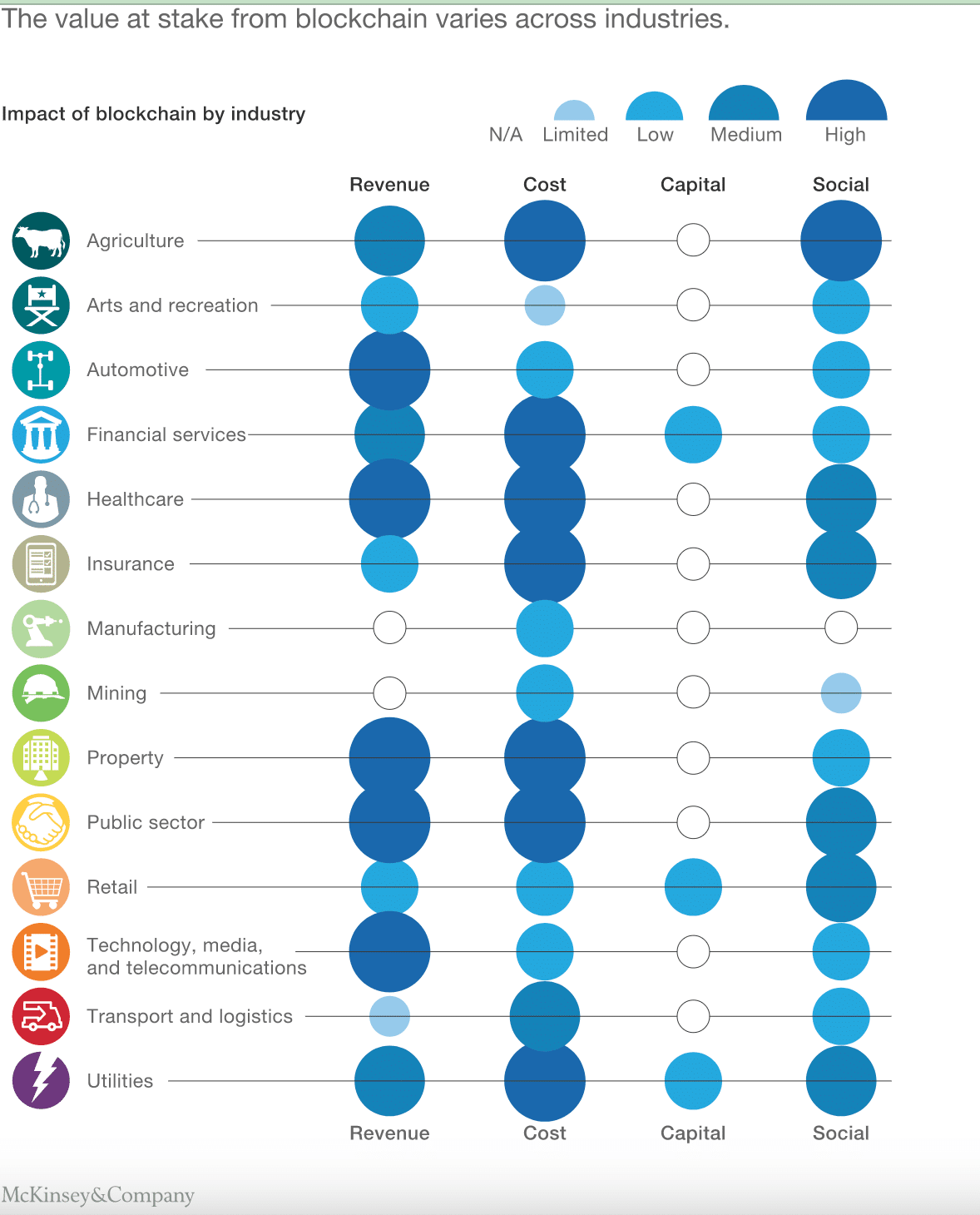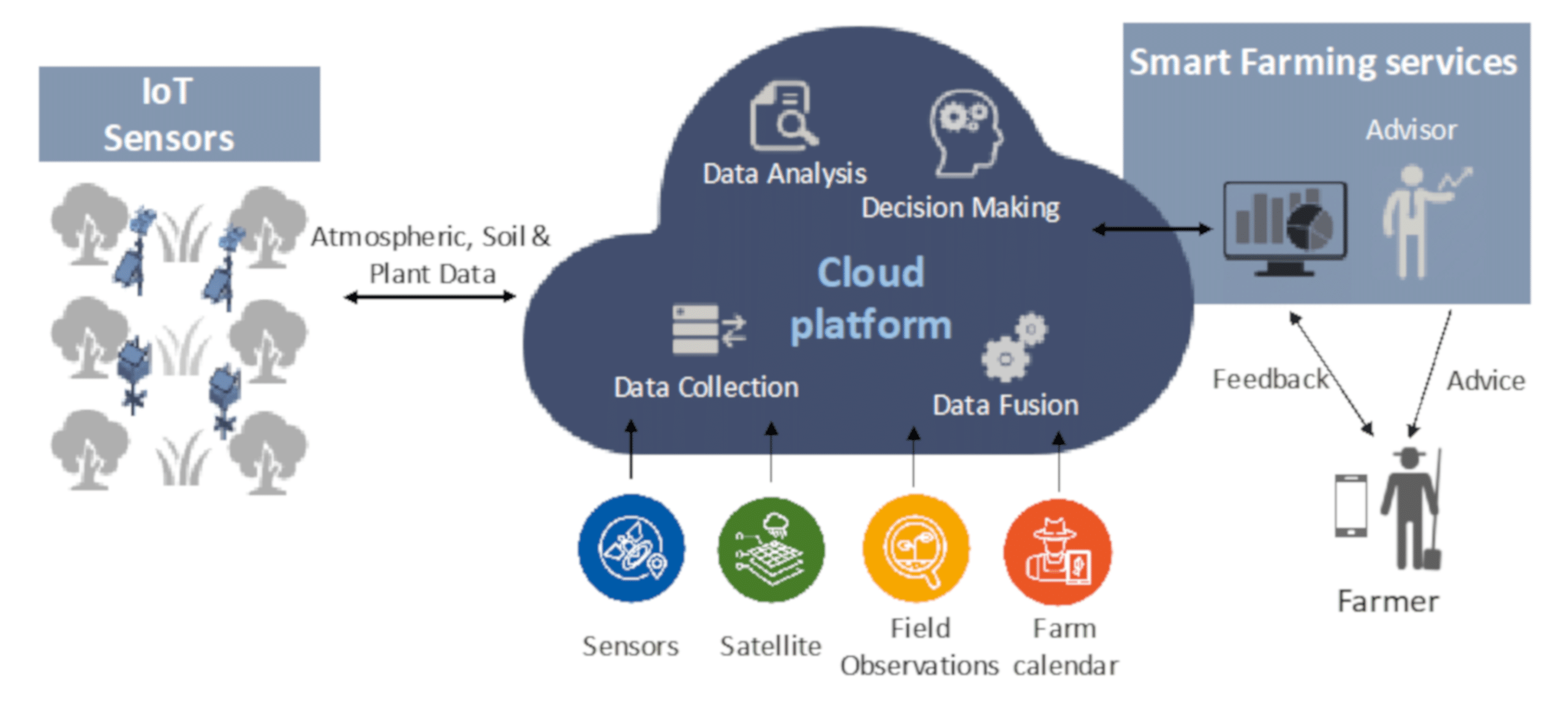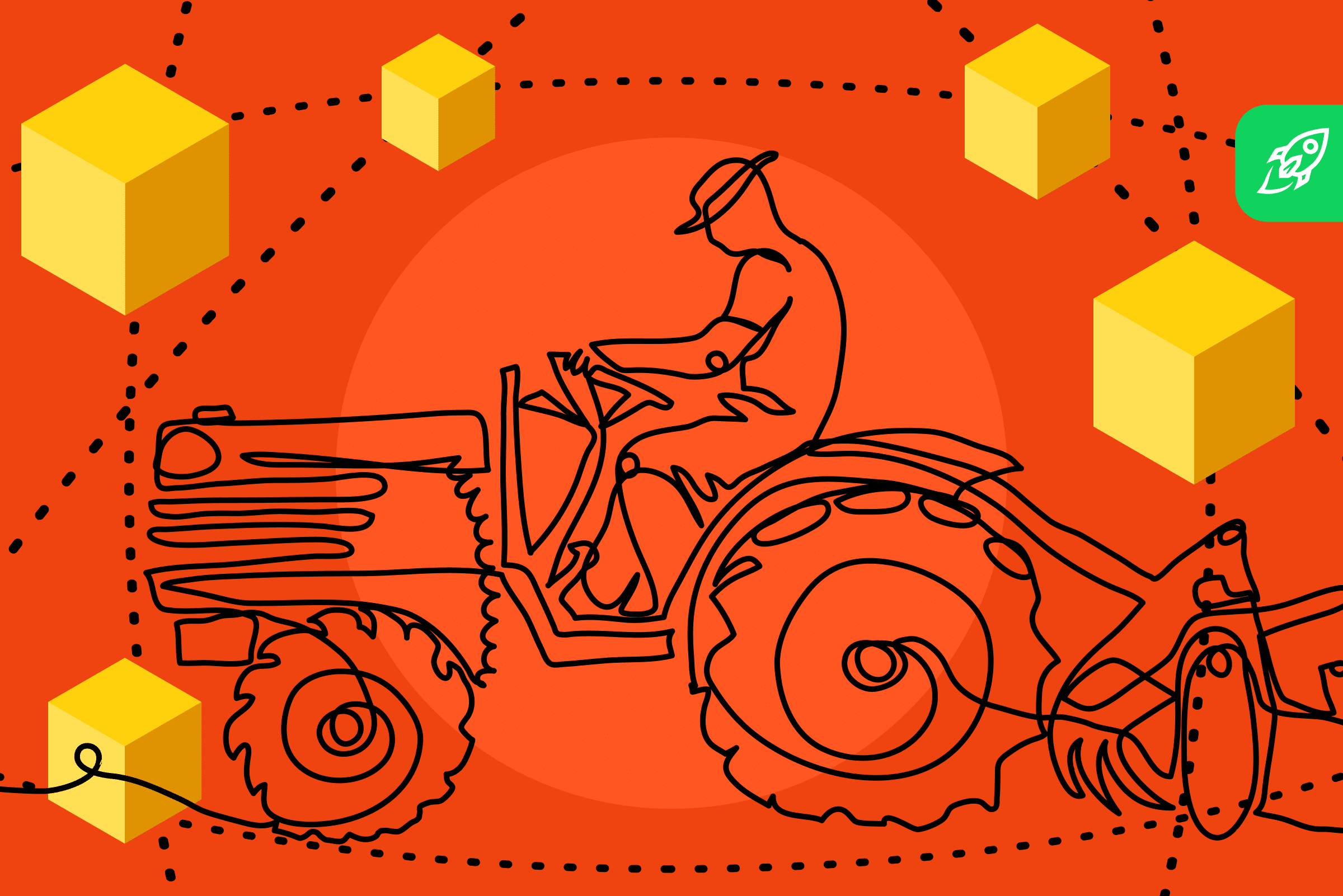intermediate
Have you ever wondered how technology can revolutionize the agriculture and food industry? With blockchain, the possibilities are endless.
Blockchain technology has been making waves in the financial sector, but its potential reaches far beyond that. The agriculture and food industry is one area that could greatly benefit from the implementation of blockchain technology. From enhancing supply chain transparency to improving food safety, the impact of blockchain on this industry could be immense.
In this article, we will explore how blockchain technology is transforming the agriculture and food industry. We will look at its potential to improve food traceability, reduce food waste, and even support small-scale farmers. As we delve deeper into the topic, you’ll see that blockchain is not just a buzzword but a game-changing technology that could shape the future of the agriculture and food industry.
Hello, I’m Zifa. For over two years, I’ve immersed myself in the captivating world of cryptocurrencies and blockchain technology. My passion for this field goes beyond its financial aspects, reaching into its potential to redefine our everyday lives. Today, I’m excited to share with you the intriguing intersection of this technology with a sphere vital to us all: agriculture and the food industry.
How Is Blockchain Used in Agriculture?
Blockchain technology has been disrupting and transforming various industries in recent years, and the agricultural sector is no exception. With concerns over food safety, supply chain transparency, and sustainability, the adoption of blockchain technology in agriculture is rapidly gaining momentum. Let’s explore some of the key applications of this technology in the agricultural domain.
Farm inventory management
When talking about inventory management in farming, it is clear that a lot of organizations aren’t leveraging modern technology to manage their inventories well. This lack of advanced tools leads to immense wastage of produce and resources, as well as to losses borne by farmers. Naturally, such losses are a huge burden for farmers who are already dealing with highly volatile markets. To address this issue, blockchain technology could be used across farms to track inventory better than ever before.
Tracking inventories becomes much easier thanks to blockchain since it offers a transparent and traceable system to store data regarding stock levels. Furthermore, sensors can be placed on inventory items to monitor storage climate and notify farmers when produce will expire so they can take corrective measures. Also, immutable records created through blockchain allow all stakeholders involved in the process to verify inventory movement & conditions in real time, which prevents lost or stolen assets from going unnoticed further down the process chain. This technology creates an efficient way for farmers to track their inventories to improve yield management and operations.
Blockchain food supply chain management
The agricultural industry is one of the largest industries in the world. It is responsible for producing, processing, and delivering food to consumers across the globe. However, the agricultural supply chain, which consists of multiple stages from production to consumption, can be complex and inefficient. In recent years, the adoption of blockchain technology has shown great potential in enhancing the efficiency of the agricultural supply chain.
One of the most significant benefits of blockchain technology in the agricultural sector is its ability to facilitate supply chain transparency and traceability. Therefore, consumers can be aware of where their food came from and how it was produced. By providing a transparent view of the supply chain, blockchain-based solutions enable farmers and other stakeholders to identify and address inefficiencies, which ultimately leads to cost savings and increased profits.
Blockchain technology also comes with a decentralized ledger system that enables farmers to eliminate intermediaries, such as brokers and middlemen. This reduces transaction costs and increases the transparency of transactions. By leveraging blockchain technology, farmers can also increase their control over the supply chain, which results in greater profitability.
In addition, the implementation of smart farming technologies can help optimize farming processes. This includes the use of sensors, IoT devices, and other smart farming tools that gather and analyze data to help farmers make better decisions about crop management, irrigation, and fertilization. This enhances the efficiency of the farming process and improves crop yields.
Furthermore, mobile applications and other digital solutions can help farmers access important information about the market demand for their products, thus empowering them to better plan production cycles and reduce waste. By embracing technology, farmers can also streamline their supply chain operations, including logistics, transportation, and distribution.
In conclusion, the adoption of blockchain technology and other digital solutions can significantly boost the efficiency of the agricultural supply chain. From production to consumption, technology can help farmers and other stakeholders address inefficiencies, increase profitability, and provide consumers with greater transparency and traceability in the food supply chain.
Controlling weather crisis
Weather control is a critical factor for farmers to consider when growing crops. Unpredictable weather conditions can throw a real wrench into crop production, especially when multiple factors must be accounted for over long periods of time. Addressing weather crises requires predictive monitoring and management techniques that provide insight into the challenges that crop cultivation is facing.
In the United States, an example of such a weather crisis is the flooding caused by spring rains. Excessive moisture in the air can lead to significant drops in oxygen concentration within the soil and other land surfaces, making it difficult for plants to perform root growth, respiration, and water uptake functions necessary for survival. Not only do farmers have to bear the brunt of losses due to crop failure, but also consumers are often unaware of weather-related issues resulting in skyrocketing prices. Without better transparency within food supply chains, there’s no easy way for consumers and producers to see what led to these uncertainties or sudden price hikes. By taking preemptive action (e.g., demand forecasting, improved communication between stakeholders) against disaster situations, both consumers and food producers may reap benefits from understanding the direct consequences of severe weather events.
Modernization of farm management software (FMS)
Farm management software (FMS) has been used for decades to help farmers manage their operations more efficiently and accurately. But as technology has advanced and agricultural practices have evolved, the need for modernization of FMS has become increasingly apparent.
One of the key areas of modernization for FMS is the integration of data analytics. With sensors, IoT devices, and other technologies gaining wider adoption in agriculture, the amount of data being generated has shot up. Modern FMS solutions need to be able to handle it and provide farmers with the tools to analyze and act on it.
Another important aspect of modern FMS is its ability to integrate with other technologies. For example, FMS can now connect with drones and satellites to gather real-time data on crops and soil conditions. This information can then be used to optimize planting and harvesting schedules, reduce waste, and increase yields.
In addition, FMS must be mobile-friendly and easy to use. Farmers are often working in the field — that’s why they need to be able to view their data and make decisions on the go. FMS with intuitive interfaces and access via mobile devices can significantly improve the efficiency of the farming operation.
With the implementation of modern FMS solutions, farmers can enjoy numerous benefits. They can reduce costs by optimizing their operations, increase yields by leveraging real-time data, and improve overall profitability through increased efficiency. Additionally, FMS can help farmers make more environmentally sustainable choices by reducing waste and conserving resources.
IoT optimization in agriculture

The Internet of Things (IoT) has taken the agricultural industry by storm, with farmers and agribusinesses using sensor-enabled devices to optimize their operations and increase yields. However, it brings a new set of security risks that must be addressed to protect data and ensure that operations are not compromised.
One of the biggest security risks associated with the IoT in agriculture is device vulnerability. Devices used in agriculture are often located in remote areas and can be vulnerable to physical attacks, tampering, or theft. Besides, IoT devices can be exploited by cybercriminals if they aren’t properly secured, leading to potential data breaches and loss of important information.
To mitigate these risks, agribusinesses need to implement proper security protocols and invest in IoT security solutions. This can include using encryption and passwords to protect devices, as well as implementing firewalls and other security measures to protect against cyber attacks. Agribusinesses should also perform regular security audits to identify and address potential vulnerabilities before they can be exploited.
Another big aspect of IoT security in agriculture is data privacy. Data collected from IoT devices can contain sensitive information about farms, crops, and other agricultural practices. This information needs to be protected to prevent unauthorized access or misuse.
To ensure data privacy, agribusinesses should ensure that all data collected from IoT devices are properly encrypted and stored securely. Additionally, they can implement access controls to limit who can view and utilize data and apply anonymization techniques to protect user identity.
In conclusion, while IoT optimization can bring a wealth of benefits to the agricultural industry, the implementation of proper security protocols is crucial for mitigating risks. By investing in IoT security solutions, addressing device vulnerability, and ensuring data privacy, agribusinesses can take full advantage of IoT while also protecting their operations and data.
Providing fair pricing
One of the key benefits of implementing blockchain in agriculture is the ability to provide fair pricing for farmers and producers.
Currently, middlemen often dominate the agricultural supply chain, taking a significant portion of the profits from farmers and leaving them with little control over the pricing of their goods. This lack of transparency and control can create a power imbalance that limits competition and innovation in the agriculture industry.
With blockchain, however, every transaction along the supply chain can be recorded on a transparent and decentralized ledger. This means that farmers and producers can have more control over the pricing of their goods, as they can directly participate in the negotiation and sale of their products.
Thanks to blockchain-based solutions, farmers can create smart contracts that are automatically executed when certain conditions are met. For example, a farmer can set a minimum price for their produce, and smart contracts can ensure that the buyer meets this requirement. This ensures fair pricing for the farmer and reduces the risk of them being underpaid for their goods.
Agricultural insurance
The weight of agricultural insurance continues to grow as the cost of farm inputs and technologies keeps rising and extreme weather events become more frequent. The current agricultural insurance system relies on manual assessment of claims, often resulting in long delays and corrupt actors who abuse the system. Smart contracts built on distributed ledger technology let insurers, farmers, and supply chain actors securely manage their insurance policies with fewer risks.
Smart contracts are self-executing and can help minimize false claim attempts by eliminating the need for manual intervention from the insurer. Furthermore, they will provide greater transparency and privacy in regard to financial information associated with an insurance policy before an agreement is reached or a payment is made. Farmers who want to invest in farming can also benefit from improved access to credit as well as secure records of their credit history via blockchain-based applications. By facilitating these secure transactions that eliminate risk, smart contract-driven agricultural insurance can bring much-needed peace of mind to everyone involved in this difficult yet vital sector.
What are the Challenges of Blockchain Technology in Agriculture?
While the potential benefits of blockchain technology in agriculture are clear, several challenges need to be addressed as well. Here are some of the key hurdles that must be overcome for the widespread adoption of blockchain in the agricultural sector:
1. Limited technical knowledge: Many farmers and agricultural businesses may not be familiar with blockchain technology and may not have the technical expertise to implement it in their operations. This means that education and training will be critical in order to help them understand how to use blockchain to improve their supply chains and reduce waste.
2. Data standardization: There are currently no standardized data formats or protocols for agricultural supply chain data, which makes it hard to integrate different systems and ensure that information is accurate and up-to-date. Developing common data standards will be necessary to enable blockchain systems to work effectively across the entire supply chain.
3. Infrastructure limitations: In many agricultural regions, there is limited access to high-speed internet and other digital infrastructure, which could limit the ability of farmers to access blockchain-based solutions. Developing infrastructure to support blockchain adoption will be crucial for overcoming this challenge.
4. Integration with existing systems: Many agricultural businesses already have established supply chain management systems, which may not be compatible with blockchain solutions. Ensuring that blockchain can effectively integrate with these systems will help avoid disruptions to existing operations.
5. Trust and collaboration: Building trust among supply chain partners is crucial for the successful implementation of blockchain technology. This means that collaboration and cooperation among different stakeholders in the agricultural supply chain will be essential in order to build a shared understanding of the benefits of blockchain and foster the necessary trust and goodwill for its implementation.
Overall, while blockchain technology holds great promise for improving transparency, efficiency, and sustainability in the agricultural sector, addressing these challenges will be vital to ensure that this technology can be used to its full potential. With proper planning, investment, and collaboration among stakeholders, however, blockchain could transform the way that agricultural supply chains operate, creating a more transparent and profitable industry for all participants.
Insights from the Industry: Avoiding Blockchain Pitfalls

Image source: McKinsey Digital
A recent survey conducted by McKinsey Digital concluded that blockchain is feasible within a variety of sectors. Despite its promise, however, it’s not without risk or challenges — many companies who’ve attempted to implement blockchain have failed due to inadequate knowledge of the technology and lack of preparation.
The mistakes prior adopters have encountered can serve as valuable lessons for those attempting to use blockchain in the future. Reoccurring issues often arise when people lack adequate training or sufficient understanding of blockchain technology, which leads to implementations going awry. Additionally, people need to realize whether implementing solutions like blockchain is truly necessary because the application of such resource-intensive technology significantly increases cost and security risks and requires extensive maintenance. Knowing where these pitfalls lie for other industries allows us to anticipate problems and take preventative measures for early adopters of blockchain tech applications in various markets.
Smart Farming Model
The development of the Smart Farming Model, inspired by blockchain technology, has begun to profoundly transform the agriculture industry. By integrating Information and Communication Technology (ICT) with the food production process, this new model promises not only to increase efficiency and productivity but also to enhance food security and transparency throughout the entire food supply chain.
The use of blockchain technology within the Smart Farming Model offers a robust, decentralized framework that increases transparency, reduces fraud, and enhances traceability. Each transaction, from sowing seeds to the distribution of crops, is recorded in a tamper-proof ledger, making it possible to track the journey of agricultural products from farm to table. This level of traceability and accountability aids in improving the quality of products and, above all, provides a clear path to resolving any issues that may arise, effectively enhancing food security.
Incorporating ICT into the mix further revolutionizes the food production process. Advanced sensors and IoT devices can monitor crop health, livestock conditions, soil quality, and weather patterns in real time. This data can then be analyzed to make more informed decisions, facilitating the optimization of resources, reducing waste, and increasing overall productivity.

The application of supply chain management software is another key component of the Smart Farming Model. With the power to document the movement of goods across the food supply chain, this software can increase efficiency, reduce costs, and ensure the accuracy of the recorded data.
The Smart Farming Model offers a vision for a future agricultural industry that is more efficient, transparent, and resilient. It could solve long-standing issues such as the lack of transparency in food sourcing, inefficiencies in production and distribution, and challenges in maintaining food quality and safety. By bringing together blockchain technology, ICT, and supply chain management software, it offers the potential for a holistic transformation of the industry.
Under the Smart Farming agenda, the agriculture industry could become a more interconnected, data-driven sector that prioritizes sustainability, efficiency, and consumer trust. Imagine a world where you can know exactly where your food comes from, how it was grown, and its journey from the farm to your table. This is the potential that the Smart Farming Model brings to the table, and it’s a vision that is becoming increasingly possible thanks to the progressive adoption of blockchain technology and ICT in agriculture.
One of the main challenges for the agriculture industry is the mismatch between production and demand, leading to food waste on one end and food shortages on the other. The Smart Farming Model could help balance this equation by providing real-time data on crop yields, weather conditions, and market demand, allowing farmers to better align their production with consumer needs. This could result in a more sustainable food production system, minimizing waste and maximizing the use of resources.
Moreover, the increased traceability provided by blockchain technology could have profound implications for food safety. In the event of a foodborne disease outbreak, blockchain could quickly trace the source of contamination, allowing for more timely and effective recalls. This could protect consumers and limit the economic impact on farmers and food businesses.
In addition, the Smart Farming Model could also help to democratize the agricultural industry. Small-scale farmers, who often lack access to modern technologies and markets, could benefit from the shared, transparent information systems enabled by blockchain. This could level the playing field, allowing small farmers to compete with larger agribusinesses and contribute to a more diverse and resilient food system.
However, the realization of this vision is not without its challenges. Issues such as data privacy, technological infrastructure, and the digital divide could pose hurdles to the widespread adoption of the Smart Farming Model. There is also the need for regulatory frameworks that can accommodate these new technologies while ensuring the protection of all stakeholders.
Despite these challenges, the potential benefits of the Smart Farming Model are enormous. It could revolutionize how we produce, distribute, and consume food, contributing to a more sustainable, efficient, and equitable global food system. As we continue to explore the possibilities of blockchain technology in agriculture, it’s exciting to imagine the transformation that lies ahead of the industry.
Conclusion
In conclusion, blockchain technology offers immense potential for revolutionizing supply chain management in the agricultural sector. By providing transparency, traceability, and trust, blockchain can enhance the efficiency of supply chain operations, reduce waste, and improve food safety. However, the adoption of blockchain technology also requires overcoming several challenges, such as limited technical knowledge, data standardization, infrastructure limitations, integration with existing systems, and building trust and collaboration among supply chain partners.
The benefits of blockchain technology in agriculture are too significant to ignore. Governments, regulatory bodies, and industry stakeholders have a major role in promoting the adoption of blockchain technology. By investing in education and training, building digital infrastructure, and developing common data standards, the potential of blockchain can be fully realized. As more and more companies in the agriculture sector adopt blockchain-based solutions, the industry will be transformed overall, and consumers will benefit from a reliable and traceable agriculture supply chain. Blockchain technology in agriculture is not just a buzzword; it is the path to the future of sustainable and efficient food production.
Disclaimer: Please note that the contents of this article are not financial or investing advice. The information provided in this article is the author’s opinion only and should not be considered as offering trading or investing recommendations. We do not make any warranties about the completeness, reliability and accuracy of this information. The cryptocurrency market suffers from high volatility and occasional arbitrary movements. Any investor, trader, or regular crypto users should research multiple viewpoints and be familiar with all local regulations before committing to an investment.
Source: https://changelly.com/blog/blockchain-in-agriculture/



